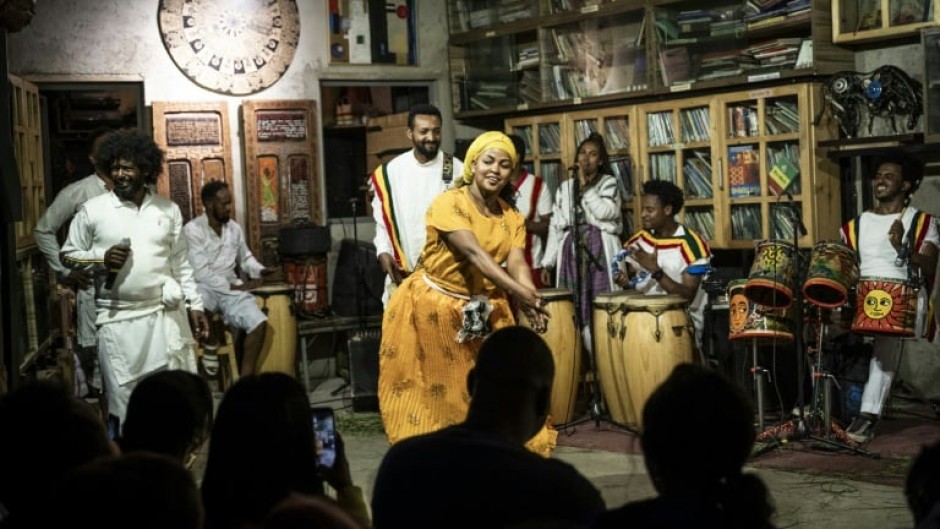
ADDIS ABABA - A beloved monument to Ethiopia's traditional cabaret culture, the historic nightclub Fendika is running on borrowed time, having just escaped demolition.
Two decades earlier, Fendika was one of 17 "azmari bet" (a venue hosting performances by Ethiopia's azmari musicians) in the Kazanchis district, a neighbourhood harkening back to Addis Ababa's jazz-fuelled era.
Today, it is the only one still standing, says Melaku Belay, the 43-year-old owner and director of Fendika.
Comparable to medieval troubadours, the azmari are itinerant poet-musicians from rural Ethiopia, who improvise songs while playing the masenqo, a single-string bowed lute made of wood, horsehair and raw hide.
Their songs are rich in metaphors and double meanings, humorously mocking their audience, civil society and even powerful elites -- reflecting a freedom of expression rarely seen in Ethiopia.

Under the watchful eyes of Melaku, an internationally-renowned dancer and choreographer who took the reins in 2008, Fendika grew to become a cultural hub.
Its nondescript entrance and dilapidated walls -- covered with faded posters -- belie the thriving life inside, where patrons can browse its library, attend performances and visit a gallery exhibiting the work of young Ethiopian painters.
In addition to the azmari, Fendika hosts Ethio-jazz performers and bands revisiting the country's musical traditions.
It is usually packed with Ethiopians and foreigners, many enjoying a glass of beer or tej, an Ethiopian honey mead.

The star attraction remains Ethiocolor, an in-house band founded in 2009 by Melaku, that has performed in Europe and the United States.
Comprising dancers and musicians from various generations and regions, Ethiocolor aims to be a bridge between tradition and modernity but also bring together the cultures of more than 80 communities in Ethiopia.
As the amplified sound of krars -- Ethiopian lyres -- reverberated across the stage, Melaku displayed his virtuosity, mixing elements from the Amharic eskista dance tradition with steps from other regions.
The charismatic performer is the soul of Fendika, a place he discovered 25 years ago, buoyed by "a passion and love for dancing".

But Fendika's performers and patrons alike had a shock last month when the municipal government announced plans to demolish the club to make way for a luxury hotel.
It was a reminder of the development drive that has taken over Ethiopia's capital since 2008, with old structures increasingly forced to cede space to new buildings.
The club "is a vital place" for Ethiopia's artists, said Eden Mulu, a painter and designer who has previously exhibited her work there.
"Fendika is the place where we meet to share ideas and ideas flow and where we support each other," the 30-year-old told AFP.
After a wave of opposition, the municipality offered a surprise reprieve to Fendika, asking Melaku to come up with a proposal to develop the land.
His ambitious dream is to build a multi-storey structure next to Fendika that can house a performance hall, recording studios and an artists' residency.
The financing could take a while, but after a 25-year love affair with Fendika, he is willing to wait.

